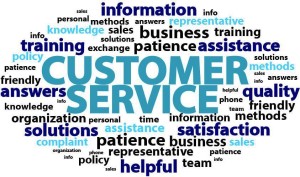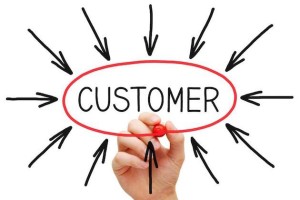It may sound counterintuitive, but empirical evidence shows that companies known for their exceptional retail customer service have gotten there by putting employees first. Apple, Nordstrom, and L.L. Bean are just a few examples of retail businesses that have built strong brands by focusing on one of their most potent assets: their people.
For the small retailer, this strategy is more imperative. Though the future of the traditional storefront appeared uncertain not that long ago, what has become known as “the experience economy” has resurrected the relevance and vibrancy of brick-and-mortar stores. Simply put, shoppers are seeking out traditional stores as destinations that offer personalized attention and a distinctive experience. For the small business, the lynchpin of survival means exceptional customer service.
3 Ways Your Staff Can Deliver Exceptional Retail Customer Service
The formula is simple enough: happy employees lead to happy customers. Effective employee engagement, however, requires more than just knowing the formula; it requires knowing how to execute it to achieve a successful customer-centric brand.
Train for Knowledge
 Customer relationships can be created or broken simply on the basis of product knowledge. When you educate your employees about your products, they can sell shoppers what they need, not just the latest trend. The result is enhanced customer trust and brand differentiation. The benefits are improved sales and a more valuable reputation.
Customer relationships can be created or broken simply on the basis of product knowledge. When you educate your employees about your products, they can sell shoppers what they need, not just the latest trend. The result is enhanced customer trust and brand differentiation. The benefits are improved sales and a more valuable reputation.
A solid training program ensures that employees learn how to identify a shopper’s needs, what benefits your product or service offers, and what differentiates you from the competition. Learning how to interact effectively with customers, understanding what a customer values and solving their problems can best be taught with role-playing. Peppering the trainee with challenging questions from other employees who are acting in the role of a sophisticated customer is an especially helpful tool for teaching product knowledge. Instructing employees about what your company stands for and what makes you different from the competition are also crucial components that need to be integrated to ensure thorough training.
Encourage Individual Style
Companies offering exceptional customer service have all learned a central truth: an employee’s style and a company’s brand should be complementary—not competitive. In fact, it is precisely the integration of the two brands—individual and corporate—that can transform a company’s reputation from ordinary to one known for delivering an extraordinary customer experience. It starts with educating employees about your goals to ensure brand consistency while encouraging staff to apply their unique approach to assisting customers.
The benefits of leveraging an employee’s style with your brand are inestimable. In fact, one prominent study recently concluded that “When your employees can be their ‘authentic best selves’ in the workplace, productivity and retention increase.”
Employees who believe in your business will be significantly more effective in providing customers with superior customer service. The dramatic shift in consumer expectations makes it vital for small retailers to adapt to this new model. Customers do not need to shop in a store because they can find virtually anything online—and for less. For the small business, this means giving shoppers a reason to want to come to your store. An exceptional experience with outstanding customer service is a red carpet that can attract a robust clientele to your business.
Develop a Culture of Empowerment and Purpose
The strongest driver of effective employee engagement is instilling in staff a sense of feeling valued. This finding has been regularly relied on by business to fill out the contours of employee training programs.
Accordingly, a small business may want to think about incorporating training modules that address human interaction, as well as product knowledge. For instance, some actionable items that have proven beneficial for a small business’s training agenda include teaching better communication and listening skills and stimulating staff collaboration. When invited into the decision-making process, staff are decidedly more eager to represent your business in the best possible light, making you shine.
Finally, training should include a healthy dose of general etiquette instruction. While the zeitgeist of the virtual world tends to promote informality, face-to-face interactions require a bit more human awareness. Being courteous and kind is never out of date, but can be unfamiliar territory to those employees who are more accustomed to interacting with a keyboard. Acquainting staff with the basic notion that good manners are good business may seem obvious, but is nonetheless essential to the bottom line.
Get Together
Embracing the belief that your staff are a core marketing asset has been shown to be a remarkably effective path to generating higher revenues. Investing time and the right resources in assisting them to develop the skills they need to do their job well is the engine that can drive exceptional customer service.

